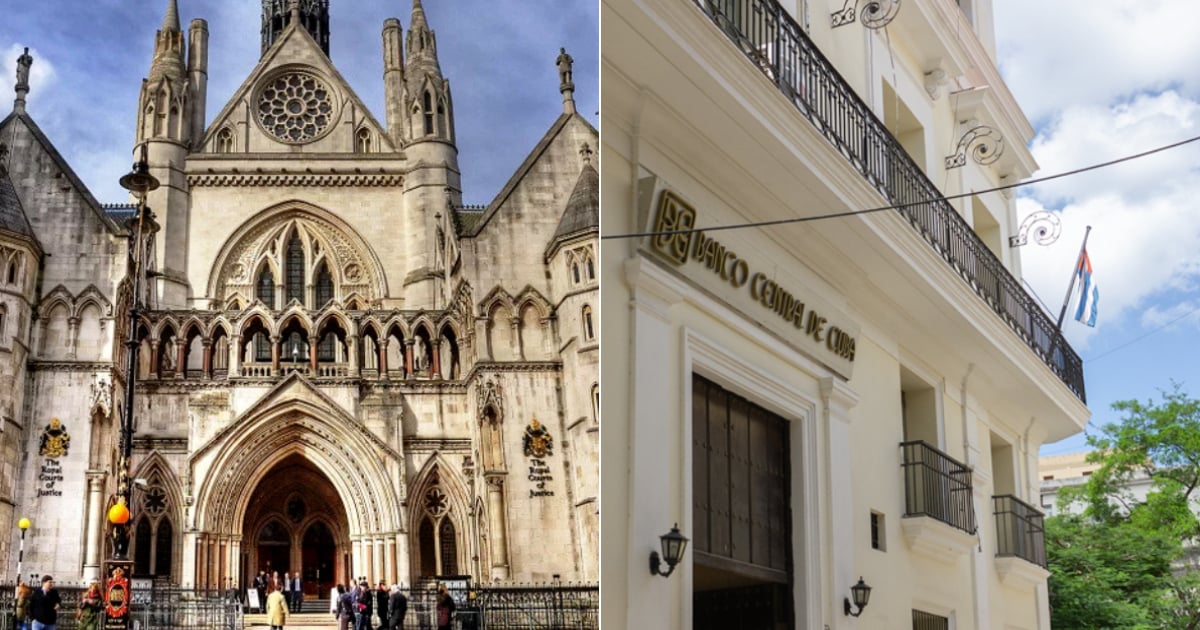The London Court of Appeal has rejected the appeal by the National Bank of Cuba (BNC) against the investment fund CRF, which Havana has labeled a "vulture fund." This decision confirms CRF as the legitimate creditor of a sovereign debt amounting to approximately 72 million euros, paving the way for a new phase in the legal process to claim payment.
The origins of this legal battle trace back several years to loans granted by European banks to the BNC during the 1980s. According to the court's ruling, these contracts are governed by English law, which the Cuban bank explicitly accepted at the time. Furthermore, the court reiterated that the BNC waived its right to claim sovereign immunity for this debt.
Extended Legal Dispute
The legal conflict between the BNC and CRF intensified in February 2023, following the conclusion of the initial trial in London. At that time, Judge Sara Cockerill determined that the BNC had officially recognized CRF as the legitimate creditor in 2019. This recognition stemmed from the approval of the transfer of contractual rights by Raúl Olivera Lozano, former operations director of the BNC, who was later imprisoned in Cuba on charges related to this case.
The BNC's appeal argued that Olivera Lozano did not follow proper internal procedures to authorize the debt transfer. Additionally, it claimed that CRF failed to notify the reassignment of the debt according to contractual stipulations. However, the court dismissed these arguments, noting that the bank effectively validated the assignment by responding to legal correspondences regarding the debt.
Meanwhile, the Cuban state was not considered a guarantor of this unpaid debt, although CRF claims to hold a total portfolio of 1.2 billion euros in securities related to Cuba's sovereign debt, a portion of which remains unclaimed.
Economic and Legal Ramifications for Cuba
This ruling deals a significant blow to Cuba's financial system, already weakened by economic crises and lack of access to international markets. According to CRF, the fund's goal is to enforce contractual rights, while the BNC has accused the litigation of aiming to "block Cuba from financial markets."
In July, during the appeal hearing, Humberto López, a pro-government journalist sent to London, described the process as an attempt to blackmail Cuba's economic sovereignty. López stressed that the fund sought to exploit the country's financial difficulties for gain at the Cuban people's expense.
This case highlights the BNC's limitations in managing external debt incurred before 1997, the year it lost its role as the central bank. The bank now finds itself in a weakened position against international creditors who benefit from favorable legal frameworks in foreign courts.
Setting a Precedent and Future Outlook
The Court of Appeal's decision reinforces the initial 2023 ruling and sets a crucial precedent in cases involving sovereign debt. For CRF, this outcome represents a major victory. Jeet Gordhandas, a representative of the fund, told the press: "This unanimous decision is a pivotal milestone in our efforts to achieve justice and enforce contractual rights."
The fund has announced plans to continue pursuing the full payment of the debt through further legal action. However, the process may face numerous legal and financial obstacles that could delay enforcement.
Meanwhile, the Cuban regime finds itself at a crossroads. In addition to the challenges posed by the debt, it will have to confront the political and economic repercussions of a ruling that lays bare the fragility of its opaque financial system. At a critical juncture for Cuba's economy, this decision could further complicate recovery prospects.
